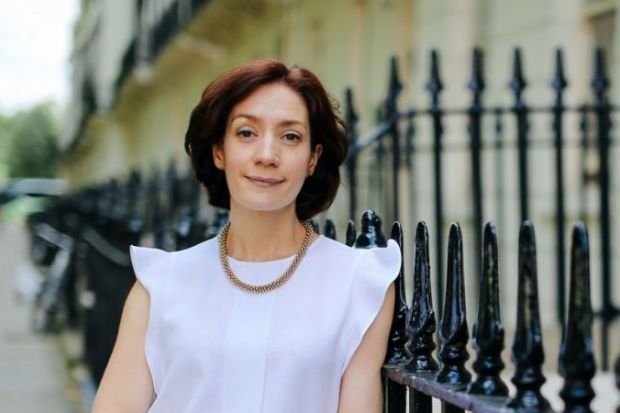The relationship between the Office for Students (OfS) and the higher education sector has been characterised by “fractiousness” and a lack of trust, according to the chief executive of Universities UK.
Vivienne Stern, giving evidence to a House of Lords select committee that is investigating the role of the OfS, said the regulator would benefit from rebuffing political interference.
“Broadly speaking, there is support for the OfS and what it is there to do, which is fundamentally to provide a mechanism to ensure there is public confidence in the way that universities are operating – both in terms of quality and value, but also access to higher education,” she said.
Ms Stern, who took up the top job at UUK last September, said the OfS’ remit was clear, but in its five years of existence it had gathered additional responsibilities and had to deal with a “revolving door of new ministers of state” and political instability.
Ministers’ tendency to treat the regulator “like a Christmas tree” and hang another bauble on it when they had a new issue that needed to be addressed was causing trouble, she told the committee.
The Industry and Regulators Committee’s inquiry had previously heard from one of the country’s leading vice-chancellors that the OfS was “not up to the job”.
Ms Stern said the initial phase of the relationship between the sector and the regulator had been “characterised by fractiousness” but needed to go beyond that.
“My strong view is that a good OfS in which the sector has confidence and in which there is public and political confidence is in all our interests,” she continued.
“It is right that parents and taxpayers should ask searching questions about whether what happens in universities can be trusted,” she added.
But, Ms Stern went on, “the sunlit uplands of the OfS being held up as the answer to those questions is being somewhat frustrated by the character of the relationship between the sector and the OfS, which is characterised by an absence of trust and a mutual lack of understanding”.
While the 13 per cent increase in the fees paid by universities to the OfS had “gone down very badly”, the answer was to focus on practical ways to engage with the sector to increase trust and confidence, added Ms Stern.
She warned that there was a strong sense in the sector that the regulator was not sufficiently independent of government, not least because of the political affiliation of its chair, Lord Wharton, a former Conservative MP and serving Tory peer.
She also raised the issue of the number of letters written by ministers to the OfS, which subsequently issued guidance to the sector, as a worry.
“I think there would be greater trust in the Ofs and its ability to exercise a really impartial judgement in what’s happening in institutions if there was a more obvious separation between the political level and what the OfS does,” said Ms Stern.
“I would hope that the OfS as it acquires maturity will be more confident in its ability to say to minsters ‘this is our responsibility and we will take into account your views, but we won’t necessarily do what you say’.”
Vanessa Wilson, chief executive of the University Alliance, agreed that it had been a “difficult journey” so far and that the OfS appeared to be receiving more letters of direction from ministers of state than might be expected for an arm’s-length body.




